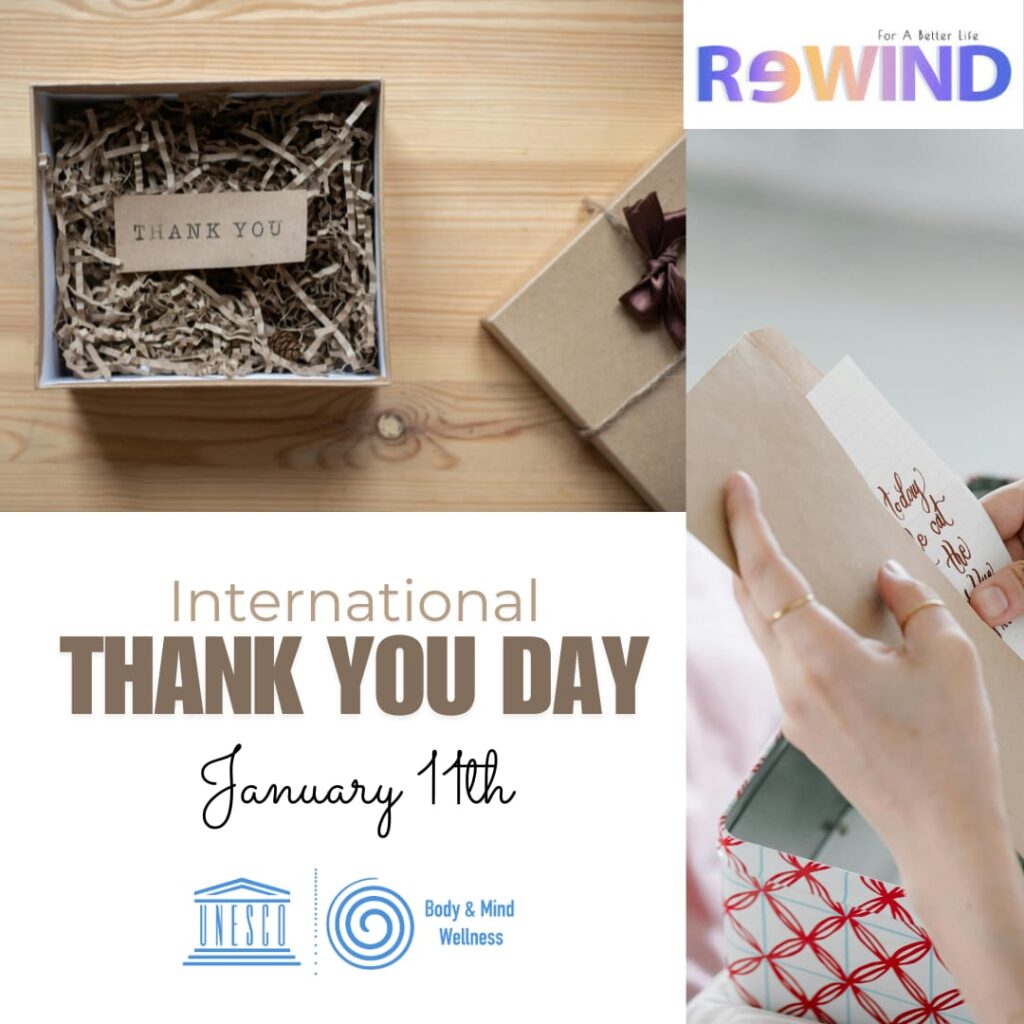
The Origin
International Thank You Day celebrates gratitude worldwide on January 11. While its origins are unclear, the tradition likely started in the 1900s. Historical records suggest gratitude has been expressed for centuries—beginning with early Egyptian and Chinese dynasties, evolving through the Middle Ages, and becoming widespread in Europe by the 16th century. Today, it is celebrated globally as a reminder of the significance of a simple “thank you.”
Importance
This day highlights the transformative power of gratitude in fostering stronger relationships and improving well-being. Research confirms that gratitude reduces stress, enhances mental health, and promotes resilience. By recognizing the efforts of those who positively impact our lives, we foster a culture of kindness, empathy, and mutual respect. It reminds us to pause, reflect, and appreciate even the smallest acts of kindness in our daily lives.
Why do we celebrate?
International Thank You Day offers an opportunity to express gratitude to those who enrich our lives. It fosters empathy, understanding, and peace, encouraging individuals and communities to strengthen bonds. Celebrating gratitude cultivates a positive environment and emphasizes the importance of kindness as a tool for social harmony and personal growth.
UNESCO BMW’s Involvement:
UNESCO BMW aligns its mission with International Thank You Day by promoting gratitude, peace, and social awareness. Through events, workshops, and digital campaigns, the organization emphasizes the importance of thankfulness in uniting diverse communities. For 2025, UNESCO BMW will celebrate those who foster inclusivity and support, advocating gratitude as a catalyst for global change.
UNESCO BMW’s Vision:
UNESCO BMW envisions a world driven by gratitude, empathy, and collaboration. Through education, advocacy, and cultural initiatives, it aims to nurture leaders who value kindness and community engagement. By embedding gratitude in global discourse, UNESCO BMW believes in building a more peaceful, sustainable, and inclusive world.
By:- Ayesha Khalid & Kiana Yousefshahi
Sources:
- https://nationaltoday.com/international-thank-you-day/
- https://www.globalbrandsmagazine.com/international-thank-you-day-the-importance-of-celebrating-it/
- https://www.freepressjournal.in/lifestyle/international-thank-you-day-2023-why-a-day-dedicated-to-this-simple-word-thank-you-lets-reflect-on-it
- https://www.charities.org/news/international-thank-you-day
- https://unescobmw.org/
- https://unescobmw.org/about-us/our-mission